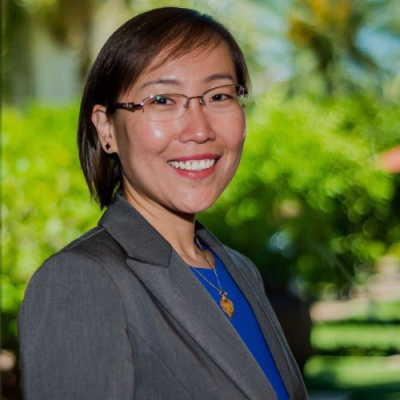1. What do you do?
I work with a group of talented people to use energy analytics to inform business planning and operations for Meta's large data center footprint. In this position, I am responsible for forecasting and managing hundreds of millions of dollars of energy expenditure.
In addition, I lead my team to provide the analytics needed to procure cost-effective renewable energy and select future data center sites that are financially prudent from an energy point of view. Recently, I led the effort to build an analytical platform to track, analyze, and forecast Meta data centers' energy performance, known as KPIs (key performance indicators). The analytics my team provides help the business understand its performance, surface potential risks, and identify efficiency opportunities.
2. What's the coolest part of your job?
There are many cool things about my job. Working at a company like Meta, my work directly supports the user experience of over 3 billion Facebook, Instagram, and WhatsApp users. In addition, Meta is committed to using 100% clean energy in its global operation; I am proud to be part of the team that delivers this ambitious goal. Last but not least, I work with seasoned energy industry professionals whom I am proud to call colleagues. They are not only the best in their respective field but also humble and fun to be around.
3. Why are you passionate about it?
Ever since I was a kid, I have been passionate about protecting the environment and addressing climate change. My passion led me to study energy and climate policy at IAC in my 20s, and now I am working at one of the largest companies on earth to enable its sustainability goals. I am extremely fortunate to have a career built on my passion.
4. Which skills from your IAC degree have helped you be successful in this career?
The most important skill I learned from IAC is critical thinking. Critical thinking is about problem-solving, and problem-solving is the engine of professional growth because only through solving new problems can we be stretched to learn new skills and gain new perspectives. My Ph.D. training in IAC prepared me to think critically at work and at major junctions of my personal life.
Another valuable asset I accumulated from IAC is like-minded friends. I became very good friends with my Ph.D. cohort, many of whom I keep in touch with to this day. They enrich my life and support my professional career.
My first job after graduating from IAC was working for a company founded by my Ph.D. classmates on urban sustainability issues. I remain on the board of directors along with my doctoral advisor. My best friend from IAC also officiated my wedding. I feel truly blessed that the connections I built during the IAC days go well beyond the five years of the Ph.D. program.
5. What's your #1 tip for students and alumni interested in your field?
The more I advance in my career, the more I appreciate communication skills and critical thinking capabilities. They are like the yin and yang of my professional life.
I mentioned earlier that I learned to think critically from my IAC days. However, I paid little attention to the art of communication when I was busy being a student and only found it extremely useful in the workplace and personal life. Communication is about being effective in connecting our words with our actions. More often than not, setbacks in the workplace and personal life result from miscommunications.
I find myself happier and more at ease when I communicate artfully and with clear intentions. I encourage young people to be mindful of how they communicate and learn the skills to do it well. I benefited from joining Toastmasters International to practice public speaking, learn how to structure a speech effectively, and, maybe most importantly, overcome the anxiety associated with public speaking. Other business communication methods, such as STAR, are also quite helpful.
Meet more featured alumni in the School of Public Policy!

